Collaborative methodologies and pedagogical approaches
Resolve to do group involves to make that chances. A group doesn’t born, it is a fabrication. Therefore, to become group involves to open spaces for enunciation and difference, and to promote strategies so that differences are not experienced as a conflict of unsolvable positions, but as a power that enriches, contrasts and amplifies the process of learning and creation.
We concept the groups as artefacts, ecological systems which experimenting and select among many relationships those that are better for them. Any artifices think themselves on movement and in plural. Its fabrication due to should show the non-natural character of our communities, and should considering that the richest of the any culture it is capacity to artifices to keep the communities on movement, and devolve new identities and knowledges.
Resolve to do group involves to make that chances. A group doesn’t born, it is a fabrication. Therefore, to become group involves to open spaces for enunciation and difference, and to promote strategies so that differences are not experienced as a conflict of unsolvable positions, but as a power that enriches, contrasts and amplifies the process of learning and creation.
We concept the groups as artefacts, ecological systems which experimenting and select among many relationships those that are better for them. Any artifices think themselves on movement and in plural. Its fabrication due to should show the non-natural character of our communities, and should considering that the richest of the any culture it is capacity to artifices to keep the communities on movement, and devolve new identities and knowledges.
︎︎︎ Do It with others
Leadership is collective. We promote horizontal relationships to value all the experiences, positions and knowledge with which we work, because the power of change lies in difference.
︎Experimental ourselves as an issue to practice Knowledge is not neutral, it depends on the subjects and their cultural heritage. That is why we want to problematise our position and vision in each project we do..
︎Leaving comfortable spaces
In order to find the material to work with, we do not look for similarities, but for differences. The margin of difference has to do with going deeper.
Leadership is collective. We promote horizontal relationships to value all the experiences, positions and knowledge with which we work, because the power of change lies in difference.
︎Experimental ourselves as an issue to practice Knowledge is not neutral, it depends on the subjects and their cultural heritage. That is why we want to problematise our position and vision in each project we do..
︎Leaving comfortable spaces
In order to find the material to work with, we do not look for similarities, but for differences. The margin of difference has to do with going deeper.
︎ Work in progress
The most difficult thing is learning to work in progress. That's why we avoid quick decisions, and we rely on the time of the process to get better results.
︎ Creating spaces of contrast and tension We rely on the power of the question to keep artistic practice alive and to promote a critical and creative approach to social and cultural issues.
︎Making minorities more visible The action of majorities dissolves dissident minorities. That is why we prioritise the antagonistic and dissident position, even if it is outside or against the framework.
︎ Creating spaces of contrast and tension We rely on the power of the question to keep artistic practice alive and to promote a critical and creative approach to social and cultural issues.
︎Making minorities more visible The action of majorities dissolves dissident minorities. That is why we prioritise the antagonistic and dissident position, even if it is outside or against the framework.
Utopia is not an island is a workshop for spectators that explores the potential of utopian thinking through imagining post-capitalist futures and projecting alternative ways of life.
Utopia is not an island
Workshop I Centro Cultural de España en Lima
Febrary 2022
![]()
Utopia is not an island invites the public to imagine possible futures through a repertoire of fictions that feed the imaginary and the possibilities of life on earth. Through some cinematographic, literary and artistic fictions, we will explore the utopian movement as a critical tool for questioning hegemonic orders, imagining parallel realities and testing new forms of social life that install temporary fictions in a world of transition.
Workshop I Centro Cultural de España en Lima
Febrary 2022
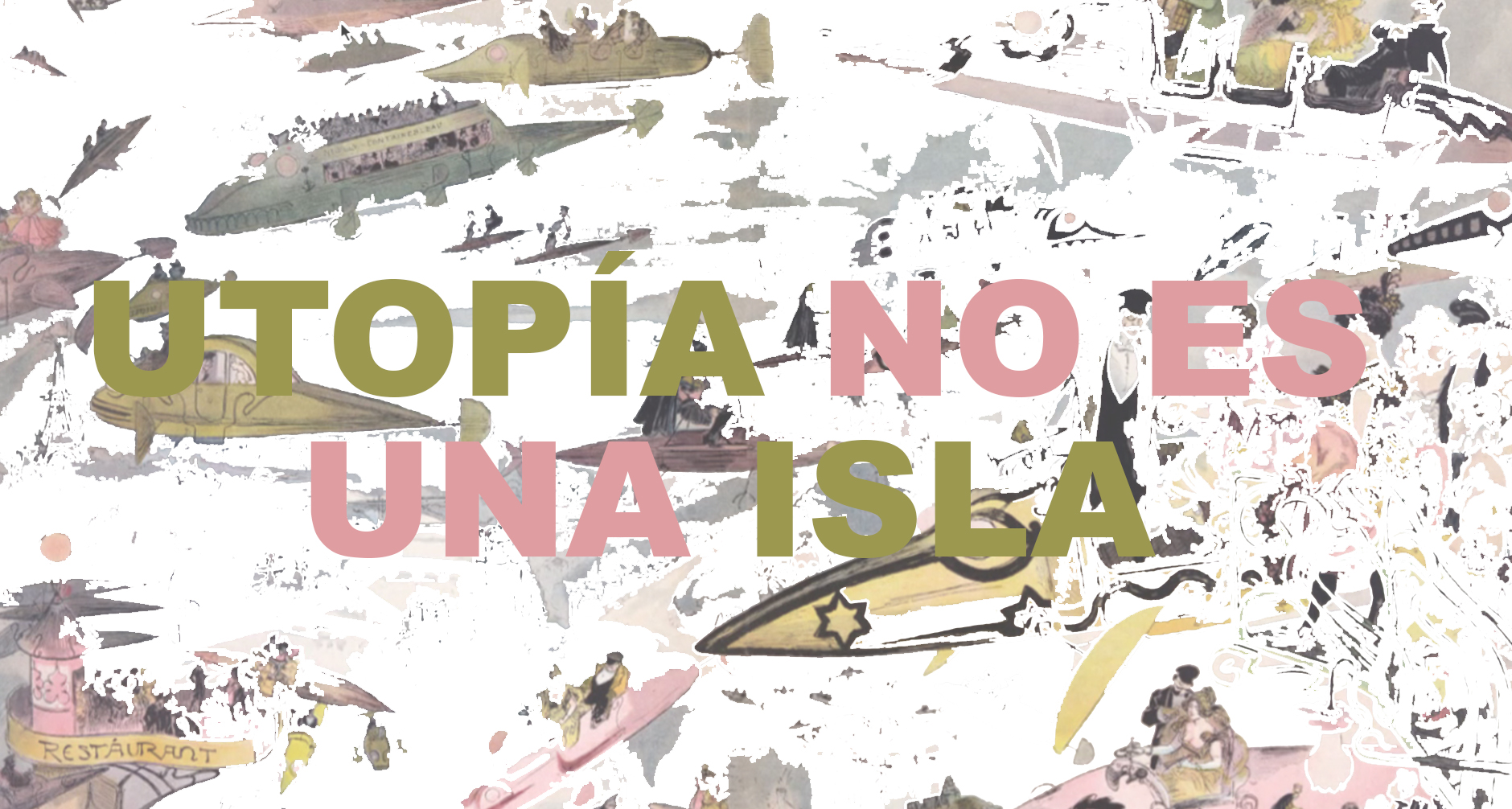
Utopia is not an island invites the public to imagine possible futures through a repertoire of fictions that feed the imaginary and the possibilities of life on earth. Through some cinematographic, literary and artistic fictions, we will explore the utopian movement as a critical tool for questioning hegemonic orders, imagining parallel realities and testing new forms of social life that install temporary fictions in a world of transition.
Assembly is an archive-fiction workshop that rehearses ways of creatively occupying the assembly in order to think about the new pedagogical paradigm triggered by the student demonstrations at the Institut del Teatre de Barcelona.
︎︎︎ Assembly Programme
︎︎︎ Assembly Programme
Assembly: el parlamento de los cuerpos
Workshop I Institut del Teatre
Febrary 2022
![]() In English, "Assembly" means both a gathering of people and a combination of actions, discourses or bodies. An assembly is a theatre, an assemblage, a cyborg body made up of extensions and prostheses and, of course, a history that we could reconstruct through the memories and documents it throws out into the world.
In English, "Assembly" means both a gathering of people and a combination of actions, discourses or bodies. An assembly is a theatre, an assemblage, a cyborg body made up of extensions and prostheses and, of course, a history that we could reconstruct through the memories and documents it throws out into the world.
If events overflow the matrix of any story, documents are the fossils with which we can reconstruct a history, a story or a new cyborg that brings together fantastic extensions, joining the facts with the fictions provided by the bodies.
This workshop just propose inhabit that ambiguity to go back the history, linking the events with its creative reconstruction to think about the new pedagogical paradigm triggered by the student protest at the Institut del Teatre de Barcelona.
![]()
![]()
![]()
![]()
If a picture is worth a thousand words, the image proposed to us by the Assembly is that of a curtain that rises to reveal us as spectators-actors of a story that happens on both sides of the stage: a present assembly that inquiries about a past assembly, and a past assembly that calls for a present assembly. An uncertain scenario in which only the future can make us leap into a new reality worth fighting for. So, the curtain rises for the parliament of bodies to renew the images of the world.
Workshop I Institut del Teatre
Febrary 2022
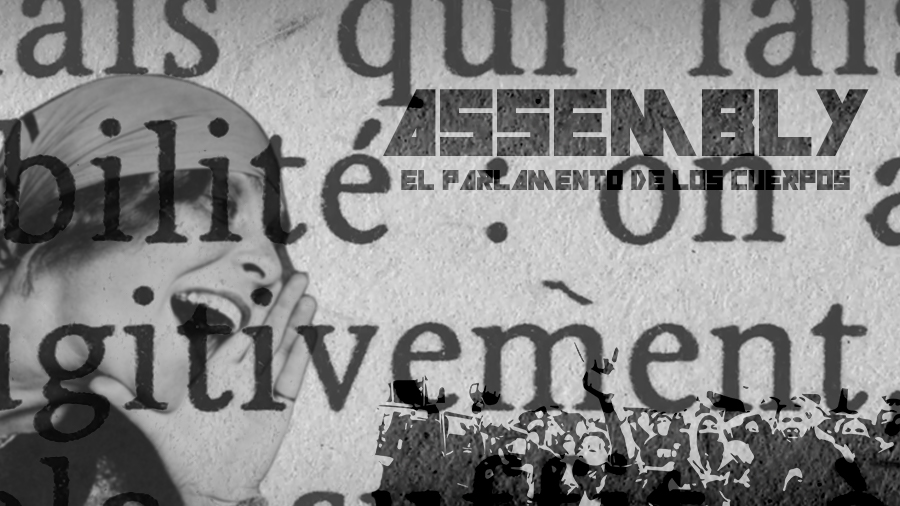 In English, "Assembly" means both a gathering of people and a combination of actions, discourses or bodies. An assembly is a theatre, an assemblage, a cyborg body made up of extensions and prostheses and, of course, a history that we could reconstruct through the memories and documents it throws out into the world.
In English, "Assembly" means both a gathering of people and a combination of actions, discourses or bodies. An assembly is a theatre, an assemblage, a cyborg body made up of extensions and prostheses and, of course, a history that we could reconstruct through the memories and documents it throws out into the world. If events overflow the matrix of any story, documents are the fossils with which we can reconstruct a history, a story or a new cyborg that brings together fantastic extensions, joining the facts with the fictions provided by the bodies.
This workshop just propose inhabit that ambiguity to go back the history, linking the events with its creative reconstruction to think about the new pedagogical paradigm triggered by the student protest at the Institut del Teatre de Barcelona.
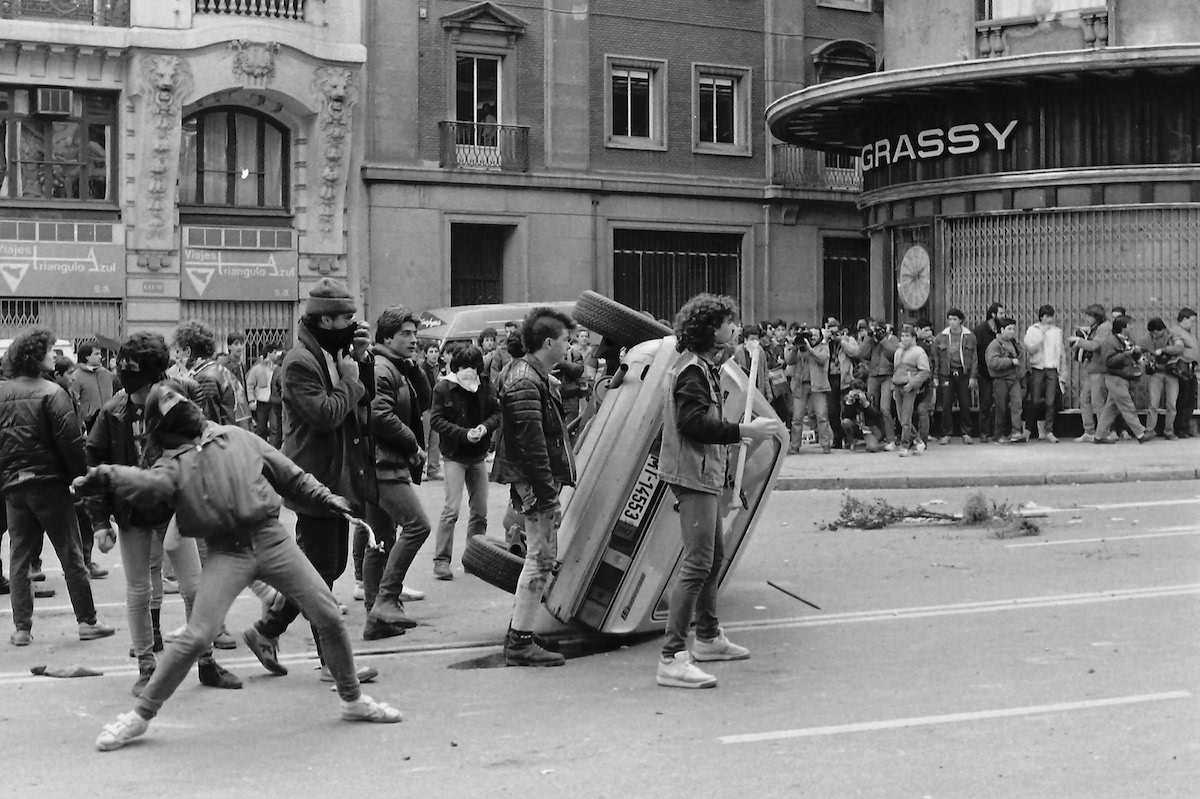
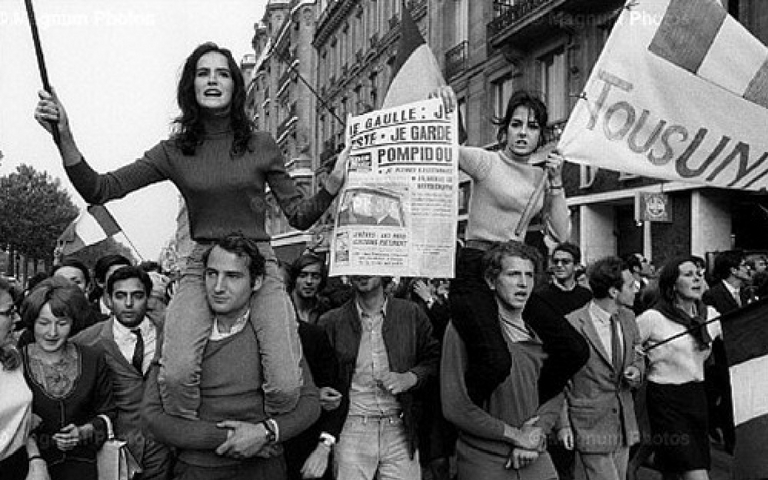

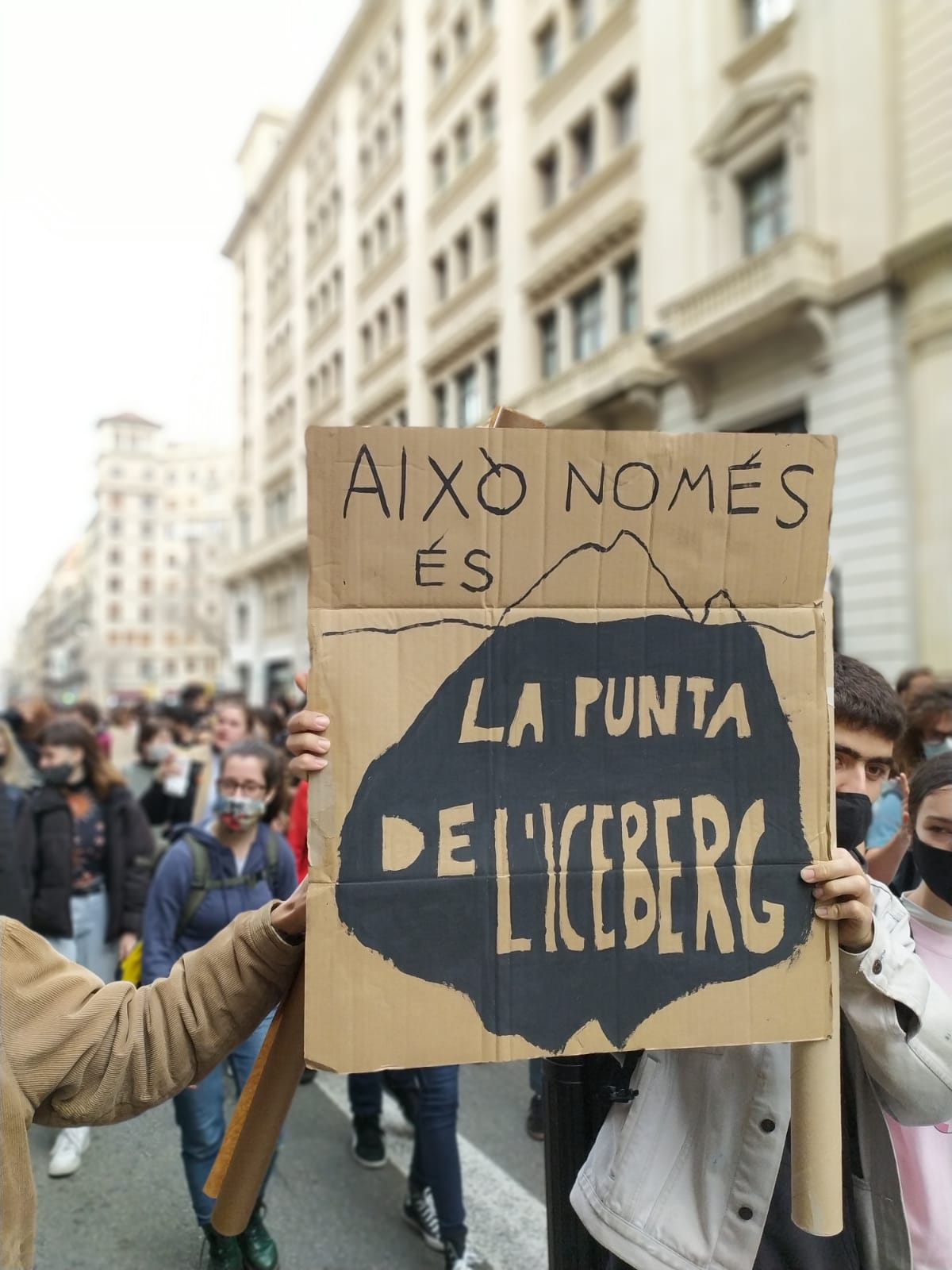
If a picture is worth a thousand words, the image proposed to us by the Assembly is that of a curtain that rises to reveal us as spectators-actors of a story that happens on both sides of the stage: a present assembly that inquiries about a past assembly, and a past assembly that calls for a present assembly. An uncertain scenario in which only the future can make us leap into a new reality worth fighting for. So, the curtain rises for the parliament of bodies to renew the images of the world.
Im_mediations is a collaborative working group programme with 4 institutions (El Graner, La Bàscula, La Inefable and AMCL) to reflect on the intersections between culture, education and territory within the Caixa d'Eines programme.
︎︎︎ Im_mediations programme
![]()
![]()
![]()
![]()
︎︎︎ Im_mediations programme

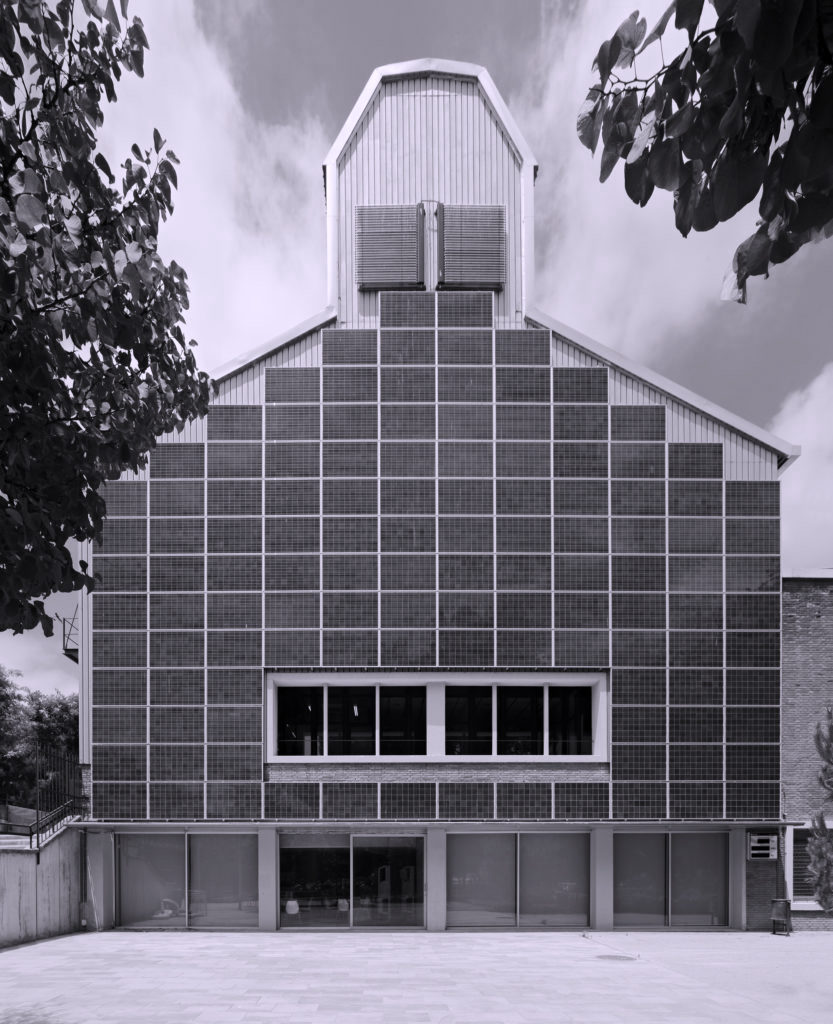
Im_mediations
Workshop I Pla de Barris de la Marina
January-Juny 2021
![]()
This programme proposes a collaborative space in which to reflect on the politics and aesthetics of proximity through the design of mediation spaces with the educational communities of the Marina neighbourhood. The programme aims to rethink community spaces and times, transform mediation practices in artistic-educational contexts, and shift the dynamics of cultural consumption towards an ecological approach to collaborative practices.
What are the matters and subjects of education, art and culture? What kind of relationships do we establish from the field of culture with educational communities? How to work on the quality of links in times of pandemic? How to question the paradigm of cultural consumption through the co-design of spaces of mediation? How to promote a cultural ecology in the Marina neighbourhood based on collaborative practices that involve diverse communities in the creation of spaces of encounter and conversation?
![]()
![]()
![]()
![]()
Workshop I Pla de Barris de la Marina
January-Juny 2021

This programme proposes a collaborative space in which to reflect on the politics and aesthetics of proximity through the design of mediation spaces with the educational communities of the Marina neighbourhood. The programme aims to rethink community spaces and times, transform mediation practices in artistic-educational contexts, and shift the dynamics of cultural consumption towards an ecological approach to collaborative practices.
What are the matters and subjects of education, art and culture? What kind of relationships do we establish from the field of culture with educational communities? How to work on the quality of links in times of pandemic? How to question the paradigm of cultural consumption through the co-design of spaces of mediation? How to promote a cultural ecology in the Marina neighbourhood based on collaborative practices that involve diverse communities in the creation of spaces of encounter and conversation?
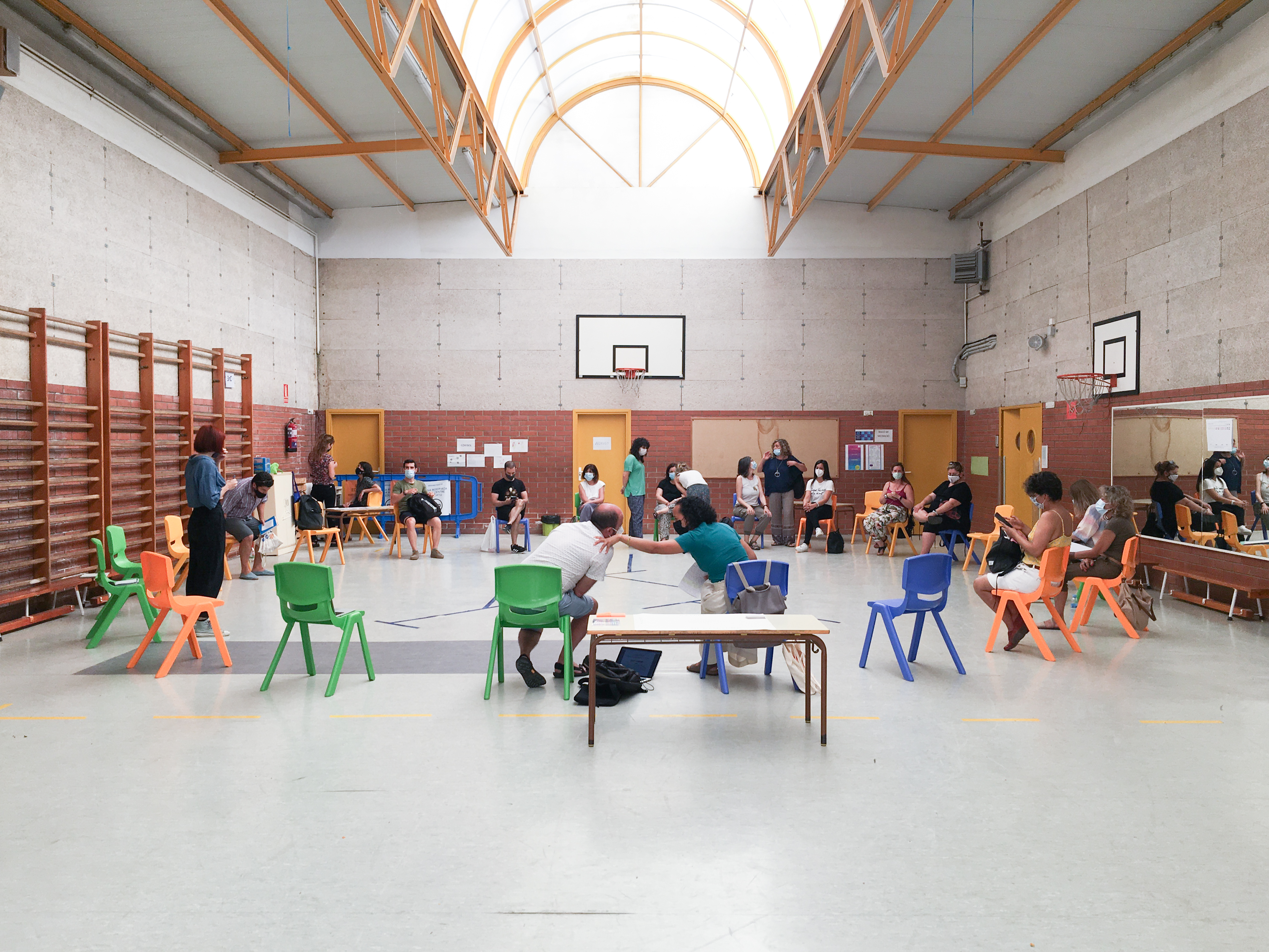
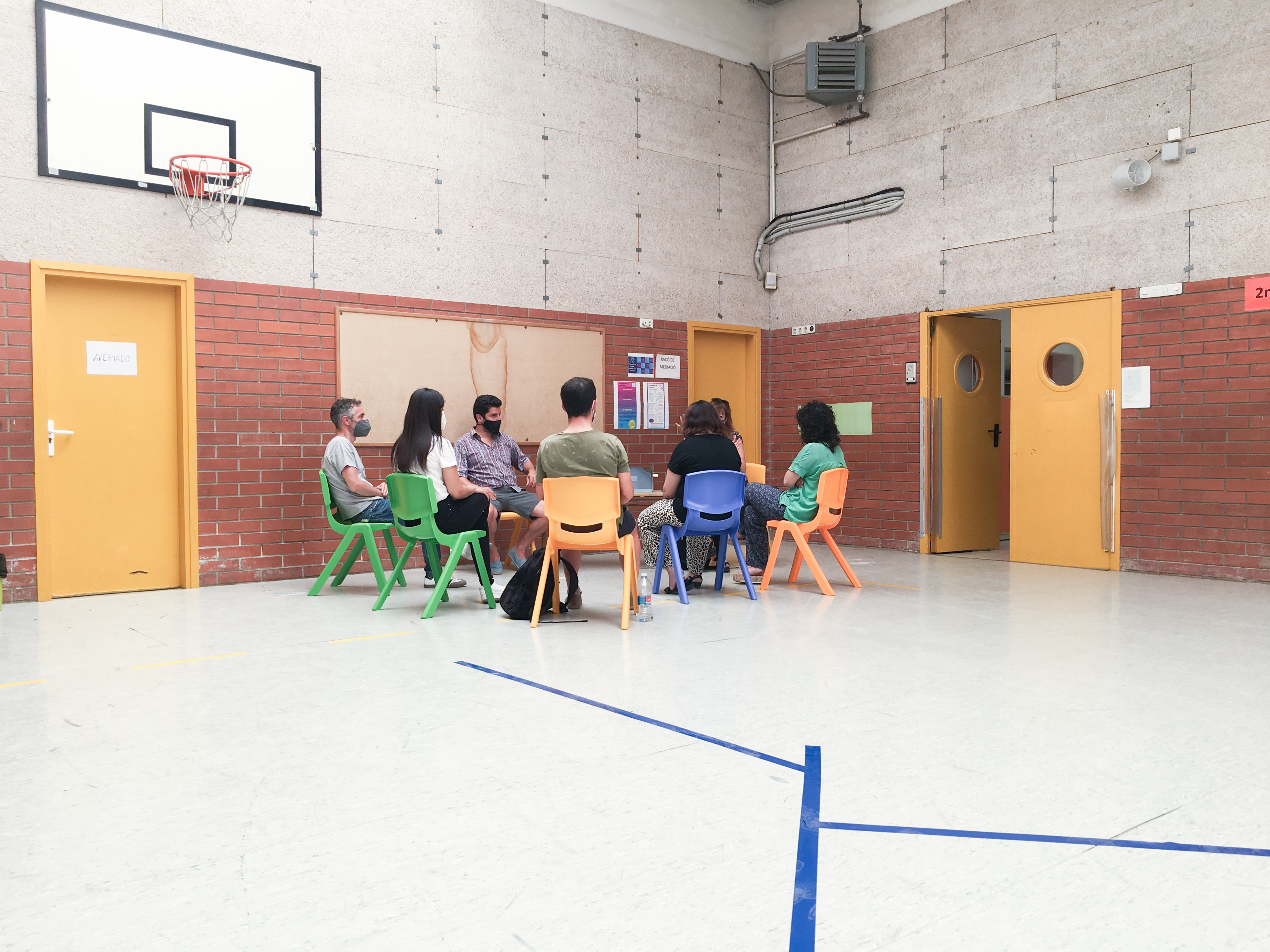
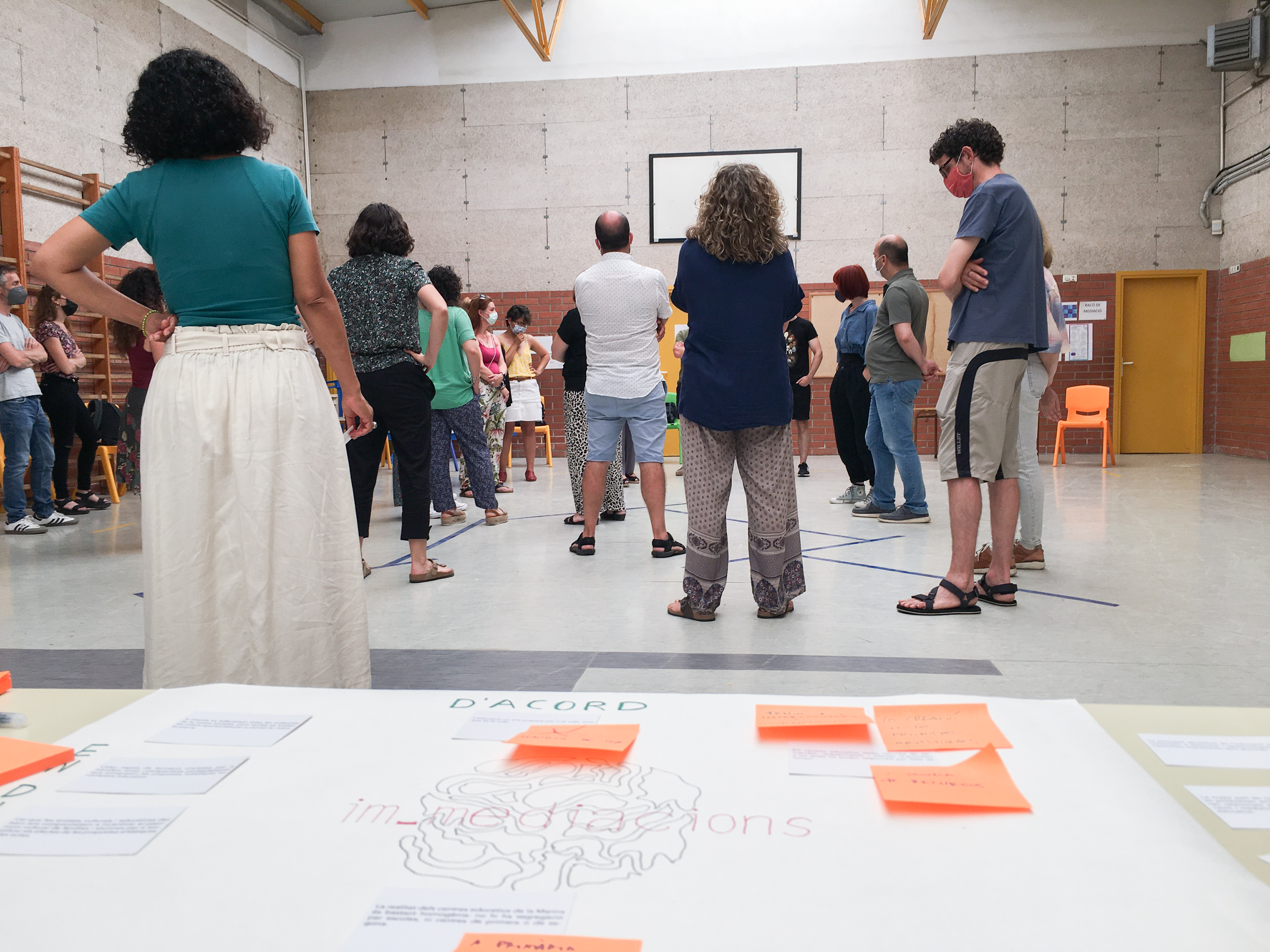
Fahrenheit 356 is a laboratory aimed at developing the methodology for the creation of a library within the Interseccions project of El Prat de Llobregat. The laboratory is based on the need to create a collaborative design space between Interseccions, Institut del Prat, Teatre del Artesà and Espai Cultural del Cèntric to plan the creation of a library.
Faharenheit 356
Co-desing workshop I Interseccions
July-September 2021
![]()
Fahrenheit 356 is a collaborative design laboratory that browse between the utopia of the public library as a space to imagine together, and the heterotopy of the books as an artifact that store the telling’s and spaces imagined by many cultures.
This workshop takes the thermal metaphor of the famous dystopian novel by Ray Bradbury, to rethink the role of books and fictions as activating and binding elements of the cultural ecosystem of El Prat. If the 451 Fahrenheit degrees of the novel point to the process of combustion of paper, the 356 degrees of our workshop point to the process of melting paper to bind together the set of institutions that participate in the creation of the library.
![]()
Co-desing workshop I Interseccions
July-September 2021
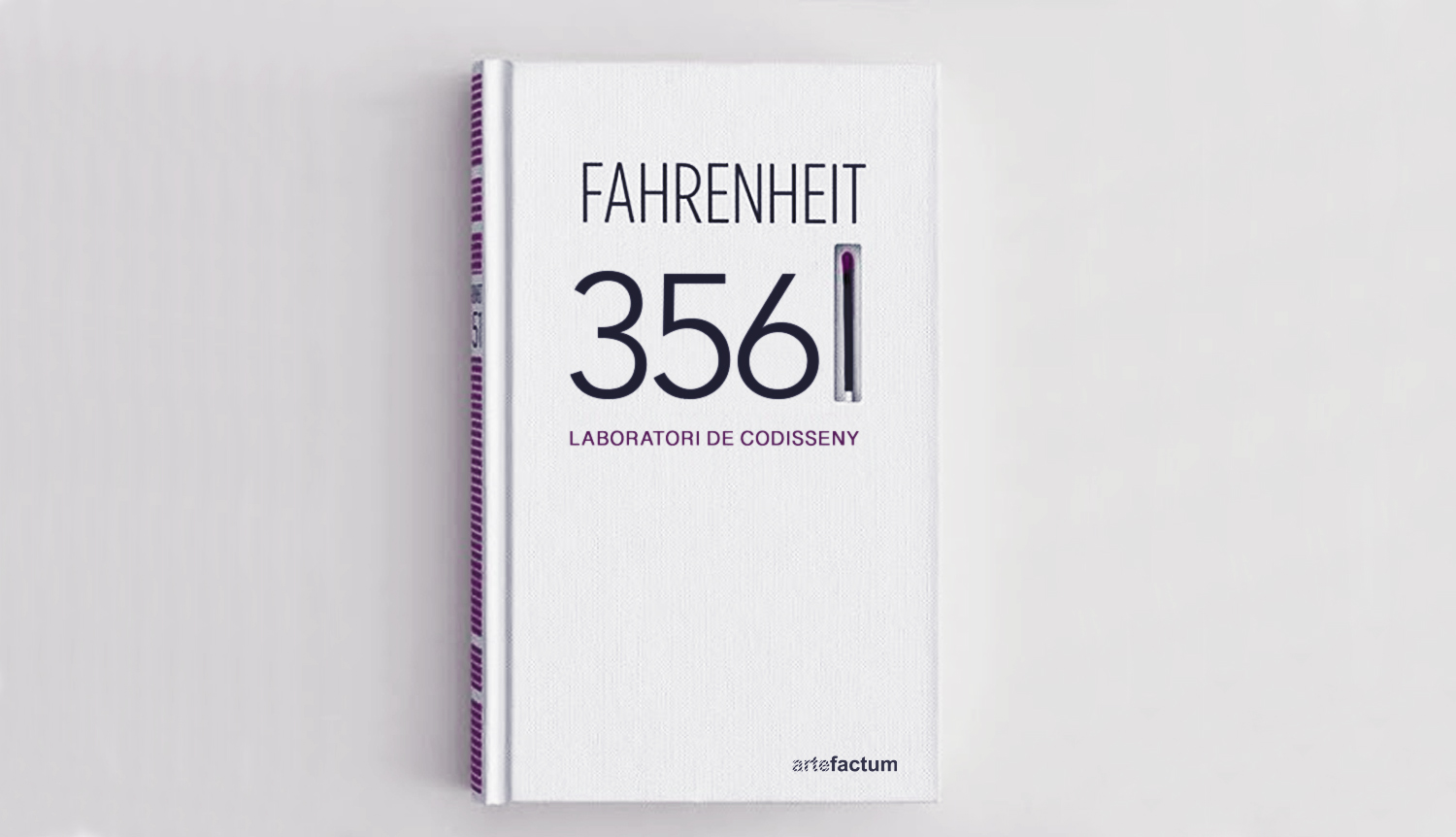
Fahrenheit 356 is a collaborative design laboratory that browse between the utopia of the public library as a space to imagine together, and the heterotopy of the books as an artifact that store the telling’s and spaces imagined by many cultures.
This workshop takes the thermal metaphor of the famous dystopian novel by Ray Bradbury, to rethink the role of books and fictions as activating and binding elements of the cultural ecosystem of El Prat. If the 451 Fahrenheit degrees of the novel point to the process of combustion of paper, the 356 degrees of our workshop point to the process of melting paper to bind together the set of institutions that participate in the creation of the library.

